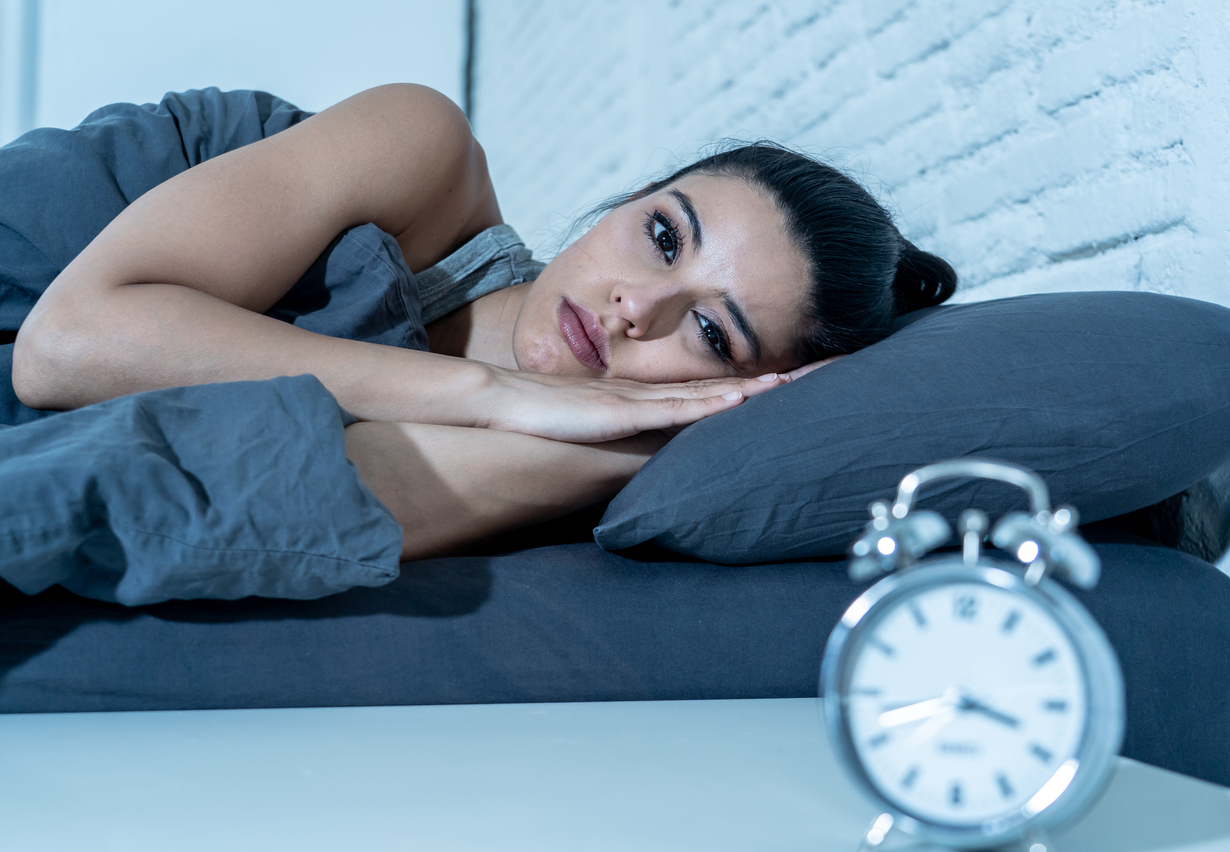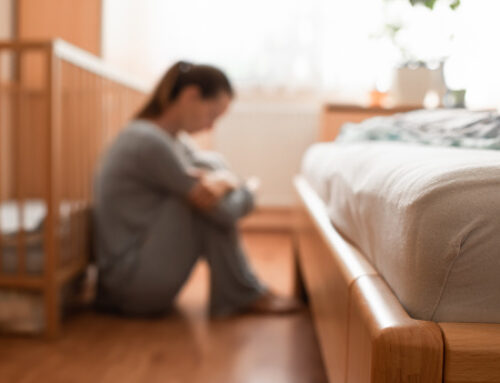Getting a good night’s sleep is more important than we often realize. Our overall health is closely connected to how well our sleep patterns match our natural circadian rhythms of sleepiness and wakefulness. Most adults have experienced occasional episodes of insomnia to some degree, but when it causes impairment of daytime functions, it should be a cause for concern.
What Constitutes as a Normal Amount of Sleep?
In order to have adequate daytime alertness, the average requirement for adult sleep is 6 to 9 hours in a 24-hour period. The circadian rhythm is like our internal clock that controls our sleep and wake patterns throughout the day. You might feel a little tired in the afternoon, and that’s normal. The main thing that affects our internal clock is how much light we’re exposed to. During sleep, our body goes through different stages and cycles to keep us well-rested.
There are 3 stages of non-REM (Rapid Eye-Movement) sleep, which are usually followed by REM sleep. REM sleep is usually associated with dreaming. One cycle of non-REM to REM can take anywhere between 90-110 minutes and the cycle repeats 4-5 times in a typical night. With each cycle, the time in REM sleep increases.
A mild decline in sleep quality can be normal in the aging process. Elderly people have more nighttime awakening and fragmented sleep and spend less time in the deeper REM stages. This could lead to increased sleepiness in the daytime and feeling the need for naps which could further enforce the disrupted nighttime sleep.
What Causes Sleep Disruption?
Causes of insomnia can be complicated to sort out and can be caused by many different factors:
- Acute medical problems such as a cold with nasal congestion might interfere with sleep.
- Prostate problems or drinking too much fluids after 6 PM can cause nighttime trips to the bathroom.
- Psychiatric disorders such as anxiety or psychosis, may cause racing or worrisome thoughts that keep people awake, while depression can cause insomnia or excessive sleep.
- Several sleep-specific disorders directly affect the quality sleep, and one such condition is Restless Legs Syndrome, characterized by an overwhelming and uncomfortable sensation in the legs and a powerful urge to move them constantly.
- Periodic Limb Movement Disorder is similar to Restless Legs but may affect other muscle groups. It causes a periodic and rhythmic series of kicks or jerks, disrupting the affected person’s sleep.
- Something more serious, sleep apnea, causes short episodes of awakenings which the patient may or not be aware of. These sleep interruptions occur with drops in blood oxygen levels which may cause decreased daytime alertness and concentration The drop in blood oxygen is caused by complete or partial blockage of the airway or sometimes by a switch in the brain which decreases respiration. It is often recognized by loud snoring and then pauses of silences followed by gasping for breath. It is usually the patient’s bed partner that brings attention to the problem. Treatment is available by keeping the airway open with positive pressure.
- Circadian rhythm disorder happens when the body’s sleep-wake cycle is not in sync with the environment due to certain hormone abnormalities or a genetic condition. Other diseases such as Parkinson’s or Alzheimer’s can cause insomnia, hypersomnia (excessive sleeping), or too much daytime napping. This is due to alterations in certain hormones and neurotransmitters which affect melatonin, serotonin, and norepinephrine.
Generally, poor sleep habits contribute to some of the most common sleep disturbances:
- Abnormal sleep-wake patterns from lifestyle or shift work can change the circadian rhythm.
- The effects of drugs, nicotine or caffeine from coffee, tea, soda, or chocolate can linger for many hours.
- Medications that commonly interfere with sleep include antidepressants, medications for lowering blood pressure, diuretics, steroids, and cold/flu/allergy medications that contain a decongestant. Herbal remedies, such as ginseng and ashwagandha, can cause insomnia too.
- Even though alcohol is initially sedating, it prevents deep sleep phases and increases awakenings in the latter half of the night.
- The sounds and bright lights of electronics in the evening can cause overstimulation in the brain at a time when our body is trying to release melatonin—the sleeping hormone. This leads to a delay in sleep onset.
Consequences
- Lack of sleep can cause significant problems with attention, concentration and memory which can lead to poor work or school performance. Fatigue can cause moodiness or depression and affect the quality of life and can contribute to accidents or falls.
- Excess worry about sleep, for instance, worrying about if you will be able to sleep tonight can cause sleep anxiety which continues the cycle of insomnia.
- Untreated sleep apnea can lead to serious heart and lung related conditions such as heart attack, stroke, arrhythmias, pulmonary hypertension and chronic obstructive pulmonary disease.
- The Central Nervous System can be affected by insomnia. Sleep deprivation can cause hyperarousal, over production of cortisol, increased heart rate, and feelings like ‘I can’t shut my mind off’.
- It can cause dependence on hypnotic medications such as zolpidem, alprazolam, lorazepam, eszopiclone and others.
Treatment Options
Although it may seem like taking a sleeping pill is a quick and easy treatment, it is not the ultimate solution and not without consequences. Studies show that a very effective treatment for most types of insomnia is Cognitive Behavior Therapy (CBT). In fact, 70-80% of people with insomnia report improvement using these techniques. CBT does not use medication but rather focuses on finding out what behaviors and thoughts are contributing to the insomnia. Other treatment options include:
- Consolidating Sleep/Sleep Compression: For instance, if you want to sleep 8 hours but only are sleeping 5, and lying in bed awake the other 3 hours, you should restrict yourself to only 5 hours in bed at first and then gradually increase the time in bed by a 1/2 hour. No naps. Don’t stay awake in bed. If you are unable to fall asleep, get up and do something relaxing until you are sleepy again. Avoid taking naps.
- Control Stimuli: Avoid eating, watching TV, using cell phone or computer in the bedroom. Cooler temperature and dark lighting are often best. Noise reduction is very important. Sometimes masking sounds with white noise can help. Adequate sunlight exposure during the daytime and low light and darkening during the evening can help reinforce your circadian rhythm. Daytime activities can make a big difference. Even modest exercise can help to improve sleep. Some people find that exercising too late in the evening can make them over energized while others feel relaxed. See what works best for you.
- Cognitive Restructuring: This process works on trying to break the frustrating cycle of insomnia and to reduce the stress and worry about sleeping. Once the emotional aspect of insomnia is dealt with, corrections can be made such as avoiding too much time lying awake in bed, and establishing a consistent schedule.
- Sleep Hygiene: This involves structuring a routine to wind down and prepare for sleep. This should start 1 hour before the anticipated bedtime and include self-care. A regular sleep schedule can help your mind and body establish a pattern to make falling asleep easier. Weekends should be included your routine also.
- Relaxation Techniques: These techniques include deep breathing, muscle relaxation, biofeedback, meditation and self-hypnosis.
Remember to always consult with your TopLine MD Alliance affiliated physician if symptoms do not improve. Medications may be considered, as well as an evaluation with a specialist.
Dr. Jennifer Romero is a proud member of the TopLine MD Alliance practicing Primary Care in Broward County.
The TopLine MD Alliance is an association of independent physicians and medical practice groups who are committed to providing a higher standard of healthcare services. The members of the TopLine MD Alliance have no legal or financial relationship with one another. The TopLine MD Alliance brand has no formal corporate, financial or legal ties to any of the affiliated physicians or practice groups.





